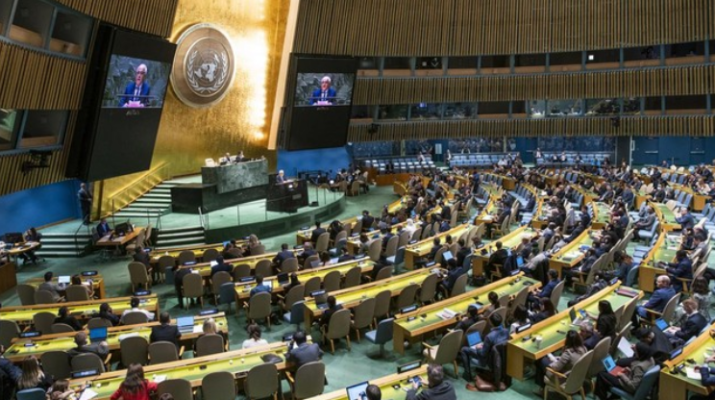ENTRE News – The United Nations (UN) General Assembly on Friday (10/5) passed a resolution encouraging the UN Security Council (DK) to reconsider Palestine’s membership in the organization. In the vote, 143 countries supported Palestine becoming a full member of the UN. Meanwhile, nine countries refused and 25 countries abstained.
Countries that reject Palestinian membership include the United States, Israel, Argentina, the Czech Republic and Hungary. Apart from that, Pacific countries such as Papua New Guinea, Micronesia, Nauru and Palau also voiced similar rejection. This UN General Assembly resolution itself not only supports the determination of Palestinian membership, but also adds and strengthens Palestinian rights in the organization.
Palestine’s status at the UN is currently a non-member observer state. For a long time, Palestine has sought full membership in the UN. However, this step was thwarted by various vetoes, mainly by the United States. Palestine needs to obtain at least 15 votes of approval from UN FOR4D Security Council member states to become a permanent member of the body.
Why do Pacific countries reject Palestine’s membership in the UN?
According to international politics and security expert from Australia’s Murdoch University, Ian Wilson, Pacific Island countries do not agree with Palestinian membership because they consider Israel’s status. Ian explained that Pacific countries mostly follow evangelical Christianity which considers Jews to be “God’s chosen people”. Not only that, the followers of this sect also view the state of Israel as a “holy land.”
“So supporting Israel is equated with protecting the holy land. This has an effect at the government level,” said Ian.
Apart from religious influence, Ian also said that the Pacific Island countries are under the influence of the United States, which is the Zionist State’s main ally. As a result, whatever decisions Washington takes will immediately be followed by these small countries FOR4D.
More than that, Ian also believes that Israel has made these countries targets to be ‘used’ in order to gain support for them at the UN.
“This includes expanding economic relations and helping Pacific countries establish embassies in Israel. For example, Papua New Guinea, they just opened an embassy in Jerusalem and not in Tel Aviv because of that assistance,” said Ian.
Likewise, Middle East observer from the University of Indonesia, Yon Machmudi, also believes that the position of Pacific countries regarding the Israeli-Palestinian conflict is very dependent on the United States.
Yon said these countries have very close political relations with the US. Apart from that, they also have “special” economic relations with Israel so it is impossible to take a position that is detrimental to Zionists.
“So they automatically support Israel and reject Palestine,” said Yon.
International relations observer from Padjadjaran University, Teuku Rezasyah, also gave a similar view. According to Rezasyah, countries in the Pacific are a group of countries loyal to the US, UK and Australia. They receive extraordinary outpourings of economic, educational and governance assistance from these big countries FOR4D.
“The four countries in the South Pacific are also being specifically monitored by the United States, so that they do not fall into China’s area of influence, which is currently introducing very attractive economic packages,” said Rezasyah.
